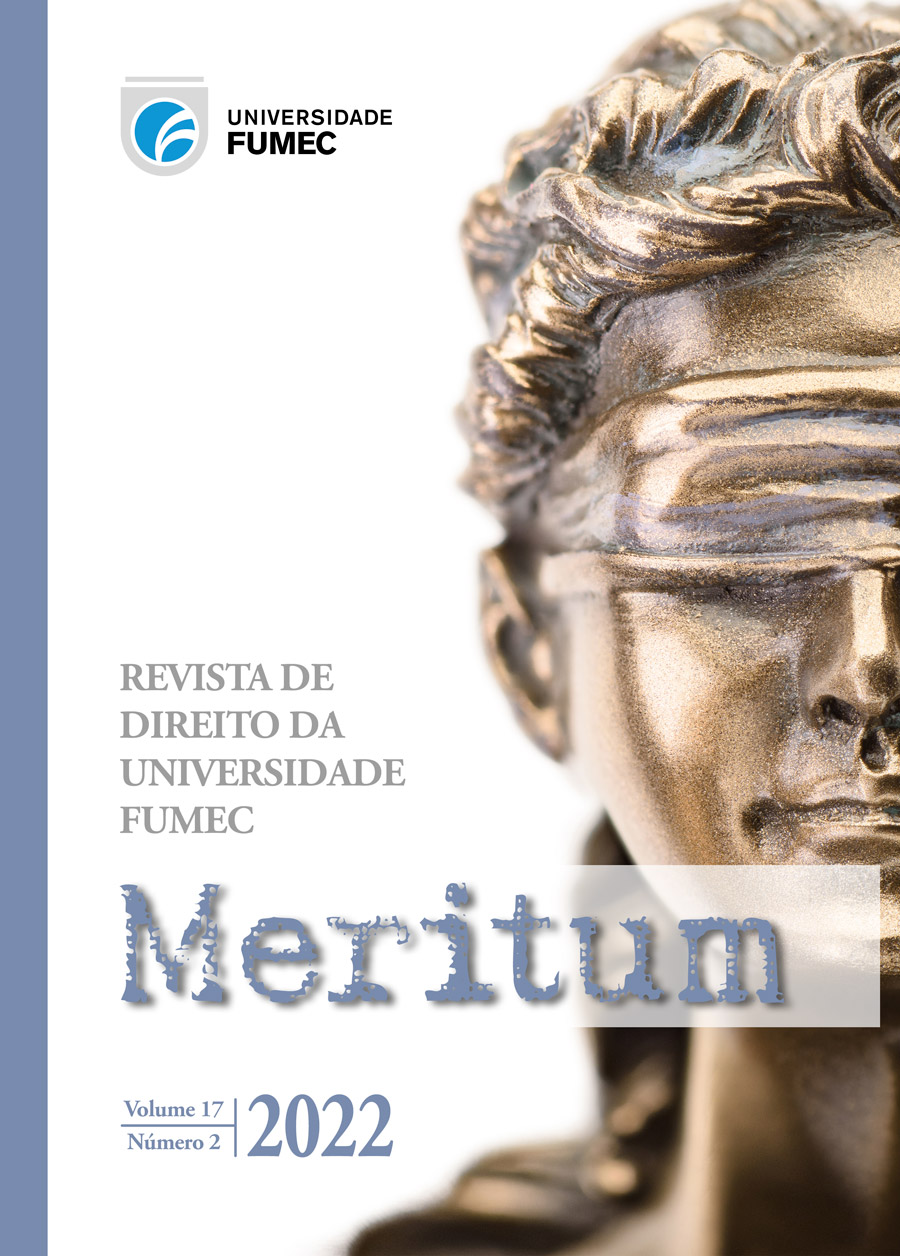A TUTELA DO CONSUMIDOR EM JUÍZO EM FACE DA RESOLUÇÃO Nº. 400 DA ANAC A PARTIR DO DIÁLOGO DAS FONTES ENTRE O CDC E A LEI ANTITRUSTE
DOI:
https://doi.org/10.46560/meritum.v17i2.8700Abstract
The general objective of this article is to investigate the collective protection of the consumer in court in Brazil under the specific focus of public civil action that discusses the alteration of the rules of air transport, through the dialogue between the sources between the CDC and the Antitrust Law. We proceeded with the study of consumer protection institutes linked to changes in the rules of air transport, recognizing also that the principles of defense of competition have as a background, in addition to the application of the constitutional principle of free initiative, the defense of the final recipient, consumer protection, given the tendency to consolidate oligopolies capable of sharpening technical, economic and informational vulnerability to the detriment of the weak player in this relationship. The methodology used was the analysis of documents and the specialized bibliography on the subject, in addition to the analysis of judges. In the specific case that was intended to be analyzed, it was seen that the position defended by the consumer protection agency in the collective action was that the Regulatory Agency should restrict the freedom of the air transport market proposed in Resolution No. 400 of the National Agency of Civil Aviation, in order to defend this weak player in the relationship, given the economic exploitation that he started to suffer through the deregulation of services. It was understood in the present reason, that the confessed deregulation of the air transport service weakened the condition of the passenger and heightened the peculiar vulnerability of the respective consumption relationship, instead of having diametrically opposite effects, insofar as the expansion of competition did not occur. , nor did it result in a reduction in ticket prices, failing to include the various segments and profiles of the contractors (both passengers and companies), failing to contribute to the resumption of growth in the sector, whose maintenance of the previous normative premises ( historically conceived in another era, register), imposing excessive burden on contractors.
Downloads
Published
Issue
Section
License
Autores que publicam nesta revista concordam com os seguintes termos:
- Autores mantém os direitos autorais e concedem à revista o direito de primeira publicação, com o trabalho simultaneamente licenciado sob a Licença Creative Commons Attribution que permite o compartilhamento do trabalho com reconhecimento da autoria e publicação inicial nesta revista;
- Autores têm autorização para assumir contratos adicionais separadamente, para distribuição não-exclusiva da versão do trabalho publicada nesta revista (ex.: publicar em repositório institucional ou como capítulo de livro), com reconhecimento de autoria e publicação inicial nesta revista;
- Autores têm permissão e são estimulados a publicar e distribuir seu trabalho online (ex.: em repositórios institucionais ou na sua página pessoal) a qualquer ponto antes ou durante o processo editorial, já que isso pode gerar alterações produtivas, bem como aumentar o impacto e a citação do trabalho publicado (Veja O Efeito do Acesso Livre).






